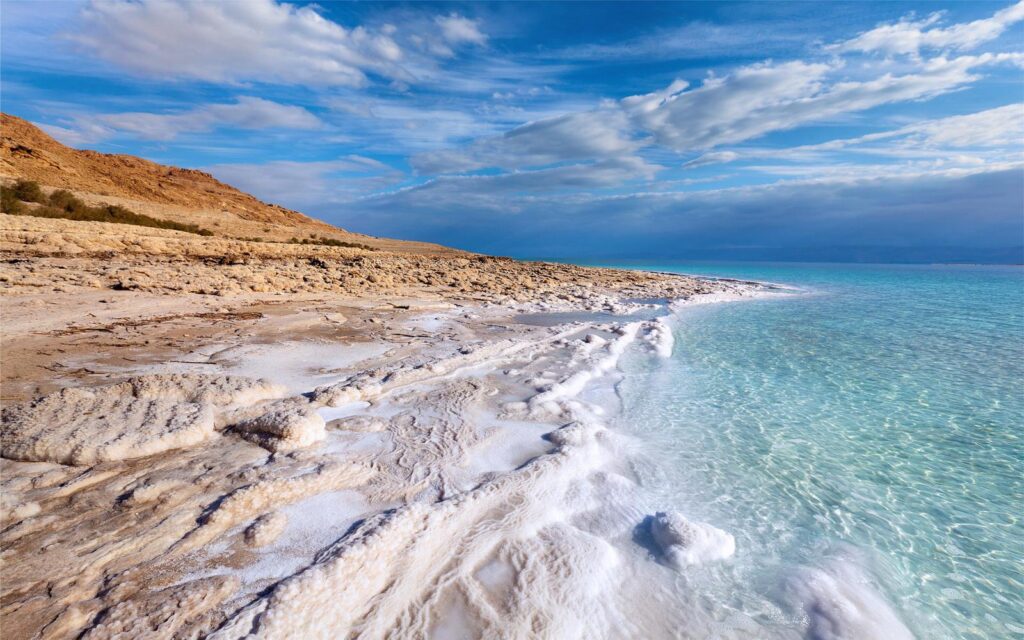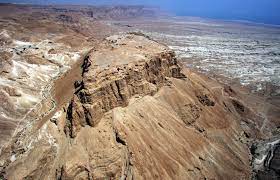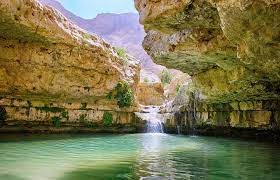The Dead Sea, found in the Middle East, is a special place that has fascinated people for a long time. It’s famous for its water, which is so salty that you can easily float in it. The water is also full of minerals that are good for your skin. Let’s go on an amazing adventure to discover the beautiful views, enjoy the healing mud, and learn about the interesting history of the Dead Sea. Get ready for a unique and unforgettable experience!
Places to visit:
Masada: Begin your journey at the ancient fortress of Masada, perched on a plateau overlooking the Dead Sea. The site holds tales of resilience and courage, offering breathtaking views of the surrounding desert.
Ein Gedi Nature Reserve: Immerse yourself in the oasis of Ein Gedi, where lush greenery and waterfalls provide a stark contrast to the arid desert. The reserve is a haven for hikers and nature enthusiasts.
The Dead Sea Panorama Complex: For a panoramic view of the Dead Sea and its surroundings, visit this complex. It’s an ideal spot for capturing the surreal beauty of the landscape.
Bethany Beyond the Jordan: Explore the biblical site where John the Baptist is believed to have baptized Jesus. The historical and spiritual significance of this location adds a profound dimension to your Dead Sea experience.
Visa Requirements:
Before embarking on your journey, ensure you check the visa requirements for your specific nationality. In general, many travelers can obtain a tourist visa upon arrival. However, it’s crucial to verify the latest regulations with the relevant authorities.
Costs and Fees
Air Ticket Fees:
The cost of airfare can vary depending on your departure location, time of booking, and airline choice. Consider booking in advance to secure the best deals. Major airlines operate flights to the nearby Ben Gurion International Airport in Tel Aviv, making it a convenient gateway to the Dead Sea region.
Travel Costs:
Once you’ve landed, transportation costs can be managed efficiently by utilizing public buses or renting a car. Public transportation is a budget-friendly option, but renting a car provides the flexibility to explore the region at your own pace.
Hotel Costs:
Accommodations along the Dead Sea cater to a range of budgets. From luxurious spa resorts to cozy guesthouses, there’s an option for every traveler. Booking in advance can often result in discounted rates, and many hotels offer packages that include access to private beaches and spa facilities.
Additional Costs:
Factor in additional costs such as entrance fees to attractions, guided tours, and spa treatments. While the natural wonders of the Dead Sea are a highlight, experiencing the cultural and historical sites may involve nominal fees.
Food & Lifestyle
Food Cuisine:
Falafel:
- Ingredients: chickpeas or fava beans, herbs, and spices.
- Preparation: Ground chickpeas or fava beans are mixed with herbs and spices, formed into balls or patties, and then deep-fried.
- Serving: Often served on pita bread with tahini sauce, tomatoes, and lettuce.
Hummus:
- Ingredients: chickpeas, tahini (sesame paste), lemon juice, garlic, and olive oil.
- Preparation: Chickpeas are blended with tahini, lemon juice, and garlic to create a creamy dip.
- Serving: Enjoyed with pita bread or as a side dish.
Shawarma:
- Ingredients: thinly sliced marinated meat (usually lamb, chicken, or beef), garlic, yogurt, and various spices.
- Preparation: The meat is stacked on a vertical rotisserie and slow-cooked. Slices are shaved off and typically served on flatbread.
- Serving: Often accompanied by garlic sauce, tahini, tomatoes, and pickles.
Mediterranean Seafood:
- Varieties: Include a variety of fish and shellfish, like sea bass, octopus, shrimp, and calamari.
- Preparation: Grilled, baked, or fried with local herbs and spices, showcasing the fresh flavors of the Mediterranean.
- Serving: Often served with rice, salad, or a side of vegetables.
Lifestyle:
The Dead Sea region exudes a relaxed and rejuvenating lifestyle. Take advantage of the slower pace to unwind and connect with the serene surroundings. Whether you’re floating in the mineral-rich waters or enjoying a sunset stroll along the shore, the Dead Sea offers a peaceful retreat from the hustle and bustle of everyday life.
Tour Essentials:
- Sunscreen: Protect your skin from the intense sun rays by applying sunscreen with a high SPF. This is crucial, especially in arid climates where the sun can be particularly strong.
- Comfortable Clothing: Choose lightweight, breathable clothing to stay comfortable in the heat. Long sleeves and pants can also provide additional protection from the sun.
- Hat: Wear a wide-brimmed hat to shield your face and neck from the sun. This helps prevent sunburn and keeps you cooler.
- Study Walking Shoes: Explore with ease by wearing comfortable and sturdy walking shoes. Whether you’re trekking through nature or exploring urban areas, supportive footwear is essential.
- Swimwear: If you plan to float in the Dead Sea or visit any other bodies of water, bring swimwear. The Dead Sea, in particular, is known for its buoyancy due to its high salt content, making swimming a unique experience.
- Reusable Water Bottle: Stay hydrated in the air by carrying a reusable water bottle. It’s essential to drink plenty of water, especially when exploring and being active.
Additional Experiences:
Consider extending your journey with side trips to nearby destinations like Petra in Jordan or Jerusalem in Israel. These iconic sites offer a deeper understanding of the region’s history and cultural diversity, adding a layer of complexity to your travel experience.
Conclusion:
The Dead Sea, with its mystical allure and therapeutic properties, promises an enriching travel experience. From the historic sites that echo with tales of the past to the natural wonders that captivate the senses, this destination invites you to immerse yourself in its unique charm. Embrace the tranquility, pamper your senses, and let the Dead Sea weave its magic, leaving you with memories that will last a lifetime.







0 Comments